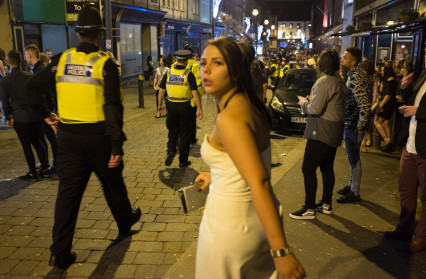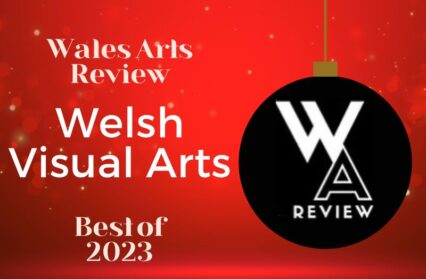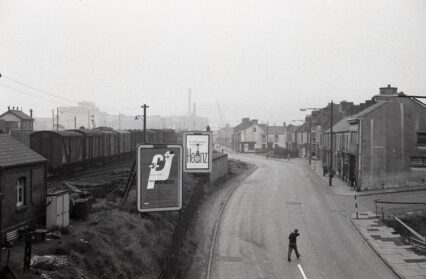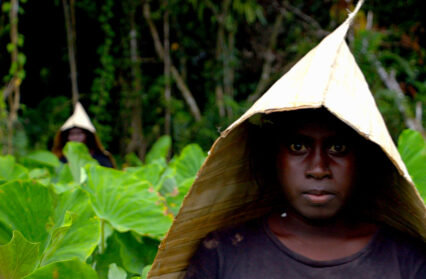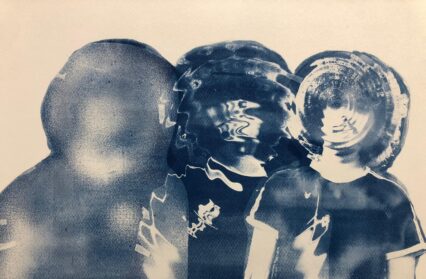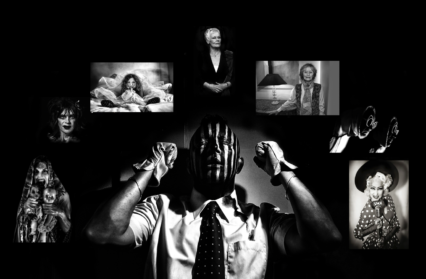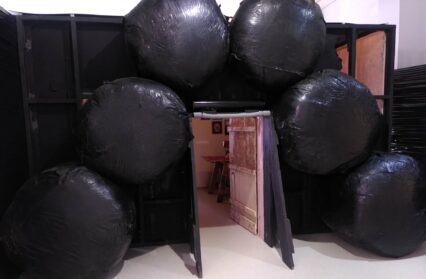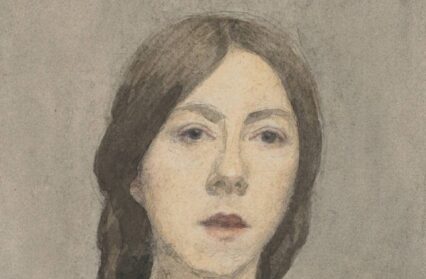The Night-Time Economy is a daring collaboration between poet, artist and curator Steven J Fowler and Newport based photographer Kate Mercer. Ahead of the exhibition in Newport’s Riverfront Theatre, both Kate and Steven spoke to Ben Glover about their experiences of the night-time economy, the nature of collaboration, and Newport.
The Night-Time Economy exhibition runs from April 6th to April 30th at the Riverfront Theatre, Newport.
Welcome Kate and Steven, I was hoping initially to find out a little bit about your project The Night-Time Economy. What drew you both to explore the night-time economy?
SJ Fowler: For me, it was meeting Kate, and discovering her work when visiting Newport for a poetry reading last year. I believe collaborations fundamentally grow from relationships between people, creative friendships, and a desire to see them grow, and the concept or direction comes as a secondary focus. Undoubtedly what became the subject of our eventual collaboration emerged from experiences I’d had in years past, things that have shaped my experience in much wider ways, but none of this would’ve been actualised into this exhibition without it being a shared point of contact between Kate and I.
Kate Mercer: I have to concur with Steven. It started from a shared experience that Steven and I found we had much to talk about and identify with. When we began discussing the respective roads we’ve since travelled, for example, pursuing poetry and photography as our careers, it struck us both how pivotal these experiences had been on us as individuals, but equally how far apart these two mediums are with regard to how they communicate with others, either explicitly, emotionally or figuratively. Whilst the experiences, anecdotes and observations we have shared have been helpful through out his project, it has as much as anything been an exploration of the capabilities and limitations of the others’ medium, developing a creative partnership therewith.
How to you think that previously working in this environment has influenced this project?
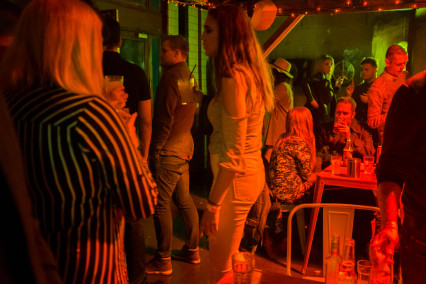
Steven J Fowler: I think working in such environments changes your perception. This is true of all work perhaps, that one gains new perspectives when you are present for money and not pleasure. And Britain’s nightlife, it’s social culture, is extraordinarily intense. I think witnessing that intensity, the release people seek in such environments, has formed the underlying impetus for the whole project – because I think we’re not trying to document, nor judge, nor comment even, but rather encapsulate this intensity and its ambiguities.
KM: One of the things that struck me as a result of being involved in the night-time economy is the dynamism it has, whether you work, play or simply observe it. All sorts of people come out at night for all manner of reasons, yet no two persons’ experience of the same situation is the same. Similar maybe, relatable definitely, but every persons memory of any given moment is their own. I think perhaps the influence working in this environment has had has been only to direct our focus on being observational. As Steven said, our approach has been to be inclusive and referential, rather than try to label or typify what we have seen about one specific place or community.
The themes of alcohol, boredom, change, frustration and security (amongst others) formed the original basis for this project, is that still the case? Or has the creative process altered the primary focus?
Steven J Fowler: They are themes in the sense that they are a fundamental part of the subject of the exhibition, but for my part at least, being interested in language and ambiguity of meaning, they have always been in the background. They are not literally present I don’t think.
KM: They are implied as much in the title as the subject matter, I feel. There is not one poem or photograph that will link directly to these – we did not set out to create a project-by-numbers – but they may be recognisable to people when they view the work in this exhibition collectively.
The ideas of “place” and sense of identity seem quite prominent in the project: is that a conscious decision or an inescapable outcome of any art?
Steven J Fowler: I actually think there’s a relationship between them being implicit around the facts of the exhibition, and in the need for there to be a description of the exhibition to expose it to audiences, that has allowed us to not necessarily speak about them too directly. Place is innate, the exhibition is about Newport, but in a way not about just Newport, but what is both specific and universal about the place.
KM: I think there will be outcomes of this collaboration that people will recognise as being relative to Newport – after all it was created here. Again though, the aura and environment that we are exploring in this collaboration are not exclusive to this city. Some may see literal connections; some may see the poetry and photographs serve more as triggers for memories and encounters they’ve had on any city’s streets. I anticipate everyone will relate to this project differently. The outcomes of this collaboration however have come about as a result of conversations between Steven and I that we’re communicating to a wider audience – to that end, our interpretation of Newport as a place may well be unlike any others.
Kate, as a resident of Newport, do you think that this exploration of the city’s notorious nightlife will challenge any preconceived notions and prejudices that people might have?
KM: I take issue with the word ‘notorious’, especially in connection with Newport. I fully acknowledge Newport has an infamous reputation for fighting, boozing and other objectionable behaviour, and is in fact legendary for it. But I find it hard to pin down the exact reason why Newport deserves this label more than any other. I’m sure equally bad behaviour happens just as much in Cardiff and in Swansea for example as it does in Newport. But the reality is that you can go out and enjoy Newport at night without ending up with a black eye, spending the night in a police cell or needing a trip down A&E. Of course incidents happen, but the reasons they do are far more complex and dependant on the individuals involved rather then something as simple as geographic location. It frustrates me that this is often the first thing people think of about Newport over anything else.
There is such an incredible vibrancy and spectacle about Newport that makes it an absolute joy to be enveloped by and photograph. This project hasn’t been about painting a warts and all story about the city – it has been about exploring how poetry and photography can work together to explore all characteristics of the night-time economy. The opportunity to create and respond to such a wealth of material is phenomenal. I hope it attracts other creative professionals to find inspiration in its characteristics too.
Steven, you have worked across many artistic disciplines and collaborations seem to be an important of facet of your creative output: what is it about the collaborative process that enthuses you? And how do you think it informs your work?
Steven J Fowler: I think poetry is the art of language, it works in language as its material, and then has to justify itself in the same material. It lends itself then to collaboration as a conversation – natural, exploratory, beneficial for the speaker. And yet poetry has a myth of solitude around it, and perhaps because I feel first element so keenly, to want to connect with people creatively, and be social with my work, and because I’m reacting against the outdated second element, collaboration is central to much of my work.
Kate, how have you found the collaborative process? Has it changed your perception of your own work?
KM: Absolutely. This whole project has been made possible by a research and development grant from the Arts Council of Wales, so as much as this whole process has been about creating, it has been about learning too. In terms of my previous work, I’ve not widely used text in connection with my photography. The thing about photographs is that whilst they are capable of capturing a single moment definitively, they are susceptible to external influence by the context in which they are shown, whether through captioning, cropping etc.
What I’ve enjoyed most about working with Steven is when he creates work in response to something, he creates work that amplifies their content, rather than tries to define them. I’m excited to see how our outcomes work in a gallery setting, and seeing how the relationship between poetry and images work in such a neutral space. I found it fascinating when in conversation with Steven, he said how sometimes a poem he’s created doesn’t come to life for him until it has been heard out loud by other people, and they in turn have responded to it. Photographically, there’s a formality about displaying photographs in an exhibition – typically in a frame, on a wall, for x-amount of time before you take it down again – that makes it almost rhetorical. Steven’s approach to creating and his need for interaction to inform develop and refine it, to push it one step further, has been hugely insightful. Perhaps this is one of the qualities language has over the immediacy and instinctual resonances of photography. It certainly has given me food for thought in future.
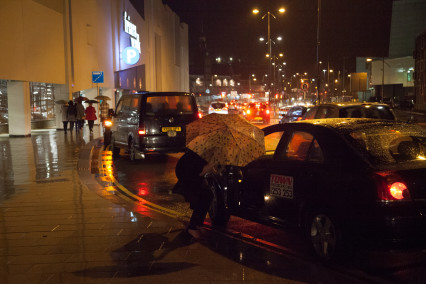
Steven, another notable aspect of your creative canon is responding to other works of art and poetry: do you think that this process of response is important?
Steven J Fowler: I think all creative work is a response to something – a thought, a fragment of language, an experience, a memory. This process is instinctive at its root, selecting the method of response, the form, and being sensitive to what one responds to. This is the root of collaboration and of responding to another’s work, something permanent beneath every artwork, but simply more obvious as a method in this way of working. Just as collaboration is important to me, so is being responsive to peers and artworks that are important to me in the fabric of my own work.
Finally, what does the future hold for you both individually and for the “Night-Time Economy” project?
SJF: It’s wonderful to have the project begin in Newport and then visit London, where I live, and to see the utterly different resonance it will have there.
KM: It’s early days for this project yet. There are so many more ways this project could evolve, and so many more elements to explore; we don’t feel it’s fully resolved. We look forward to seeing how people respond to the work in Newport and London, and will see where we go with this project from there.
All images courtesy and copyright of Kate Mercer.


